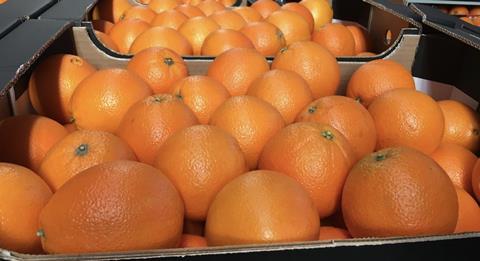With reduced volumes coming from South Africa and Spain, interest in Turkish oranges has suddenly soared this season, while Turkish lemons have also enjoyed strong demand
Demand for Turkish oranges is unusually high this season, according to Esra Söyleyen, managing partner at Turkish exporter Aksun, including from Spain, Europe’s largest producer. “There is a shortage,” she says. “Everybody’s asking for oranges this year.”

Söyleyen sees huge potential for sales, not just in Europe, but everywhere. “You can’t believe the demand,” she says. “This is not normal. Usually Spain has too many oranges, France and Italy are big producers, while Greece and Egypt are also quite cheap, so there is no room for Turkey. Most of our volumes normally go to Russia.”
In recent years, according to Söyleyen, growers in Turkey had started cutting their trees, as the prospects on the European market looked so hopeless. This year, she says, they will make good money, and will be able to reinvest.
The gap in supply is principally down to climatic issues in major producing countries, not least in South Africa. “I don’t think things are stable in any supply origins anymore,” adds Mehmet Özler of Turkish producer-exporter Özler Ziraat. “With climate change, this is affecting everyone, in Turkey, in Africa, all over the southern hemisphere. It is affecting all suppliers in one way or another. It’s changing the windows of supply. South Africa is also short on lemons this season, so they’re stopping early and there’s a big gap in the market and huge demand.”
This makes a change from previous seasons, in which Turkey has faced significant pressure on the lemon market from South Africa and Spain.
“It changes every year,” says Özler. “Last year, we felt the pressure from South African lemons, this year we didn’t. I think Egypt is also a big competitor in citrus for everyone going forward, in lemons and oranges, as they are doing a good job in terms of quality and pesticide requirements. And of course there’s the price.”
Due to the shortage from South Africa, Özler also sees opportunities on the Asian market. “A lot of customers in Hong Kong, Singapore and Malaysia have been telling us that there’s a window for Turkish lemons,” he says.
At the same time, a lot of European retailers are turning to Turkey as they look to be less reliant on Spain. The effect on prices might well reassure growers in Turkey, for this year at least.



